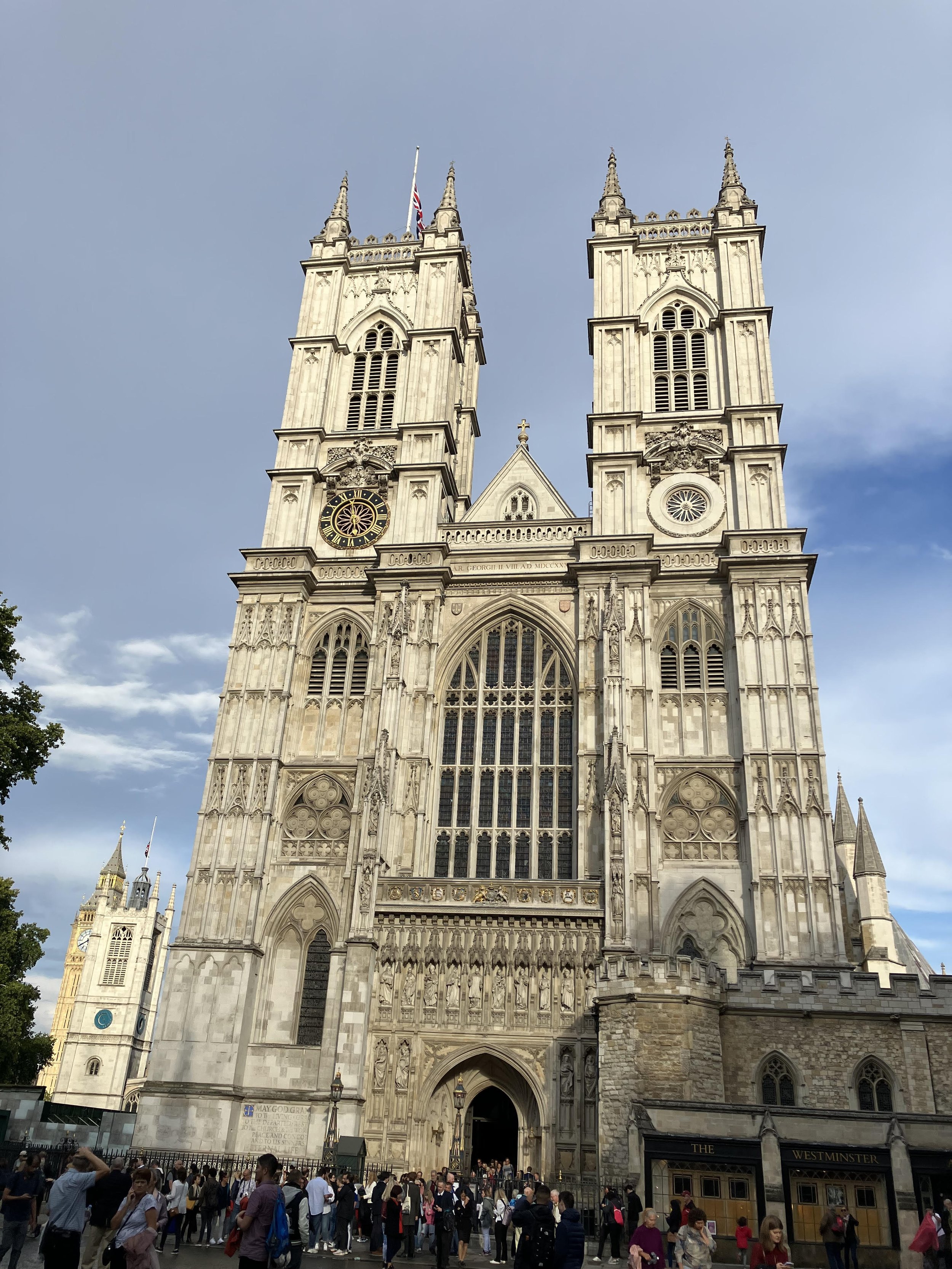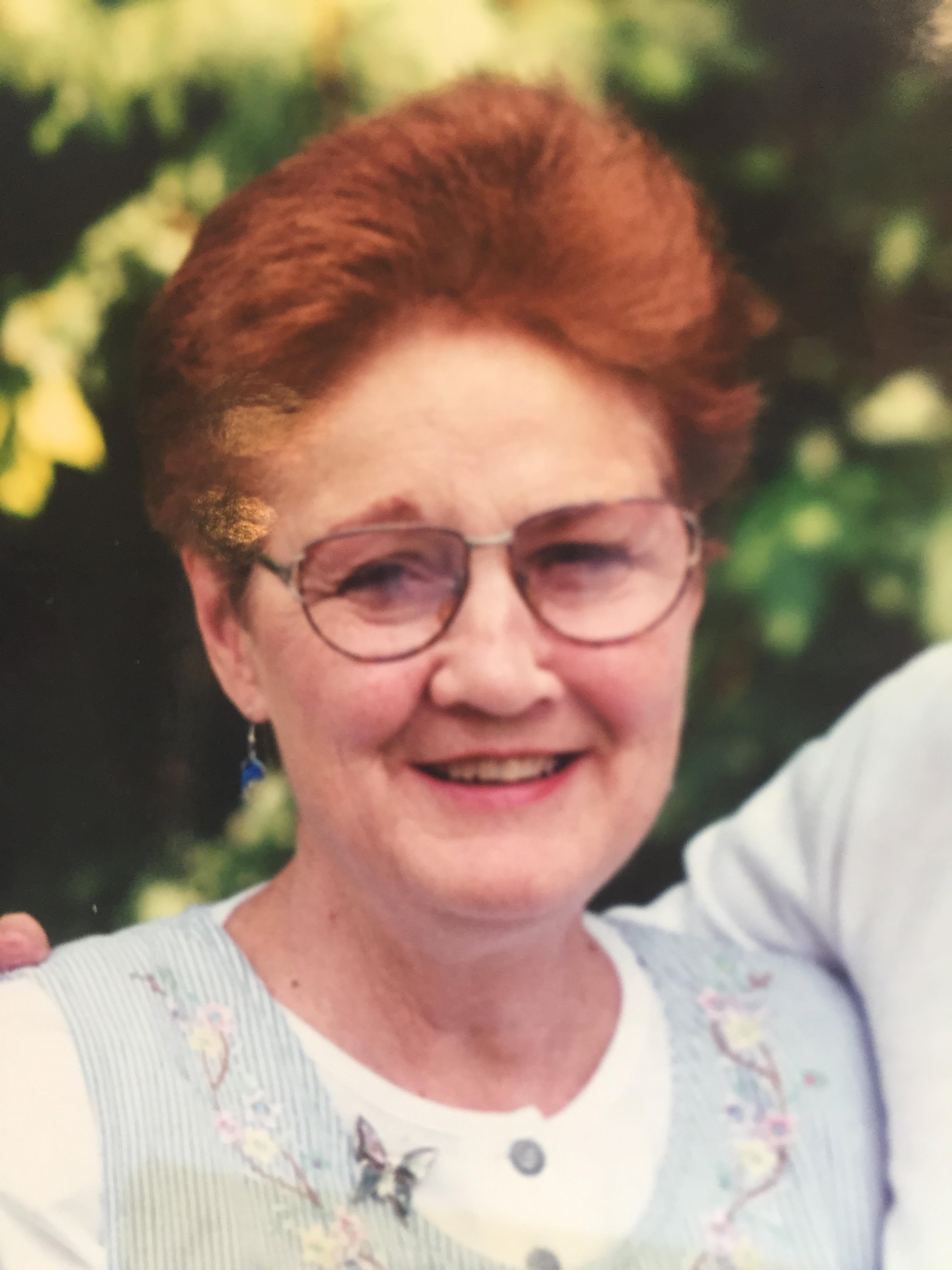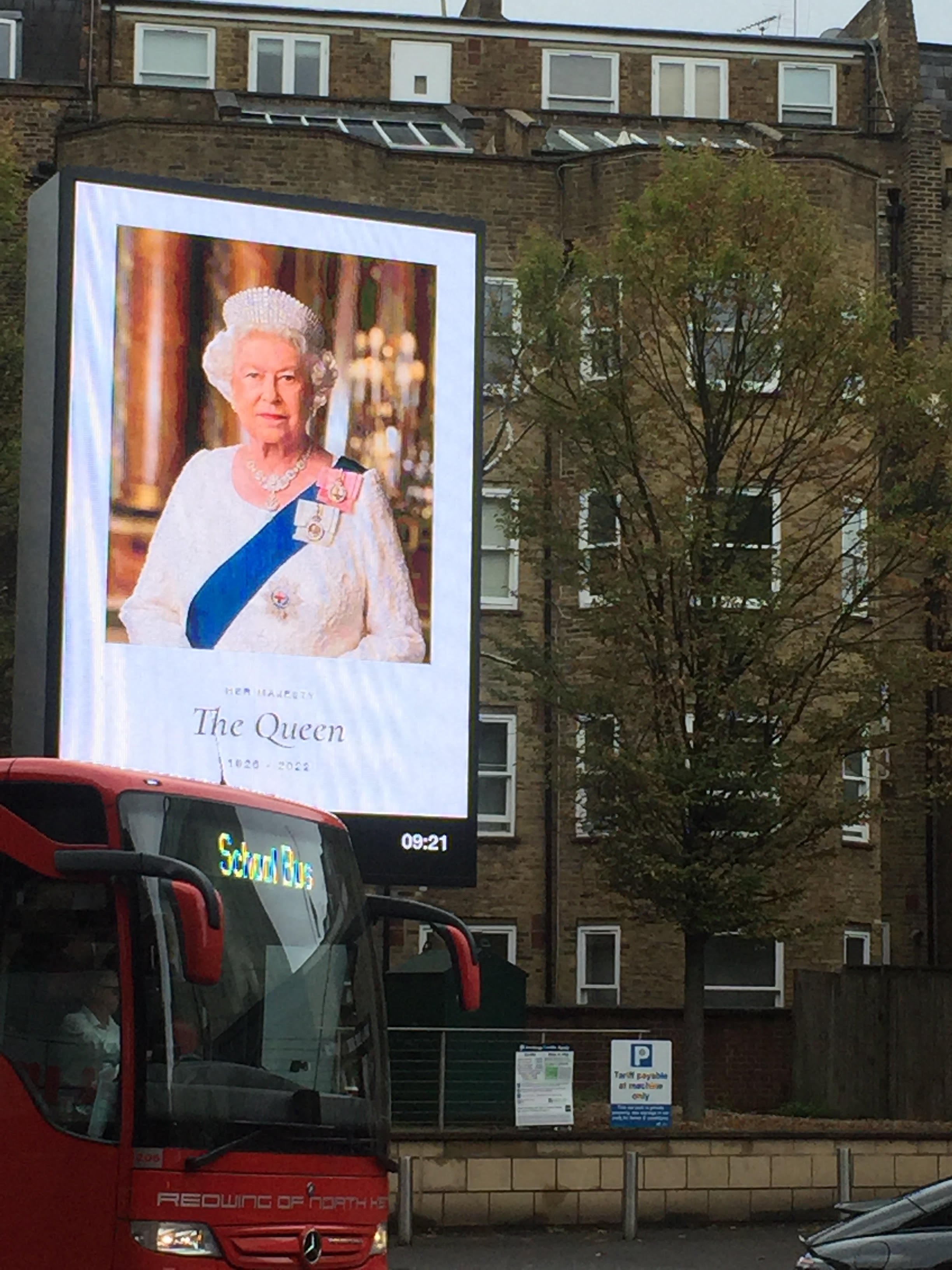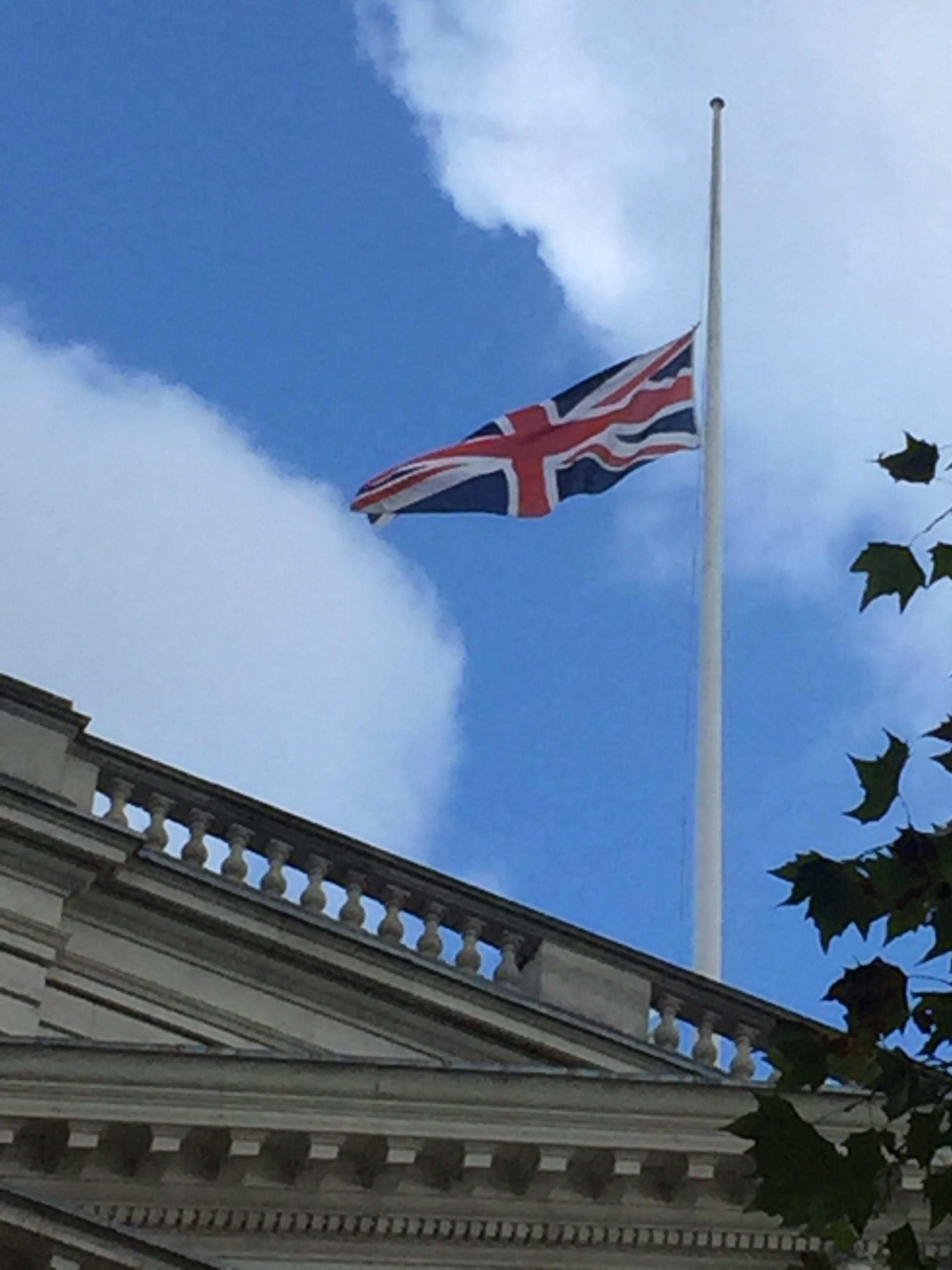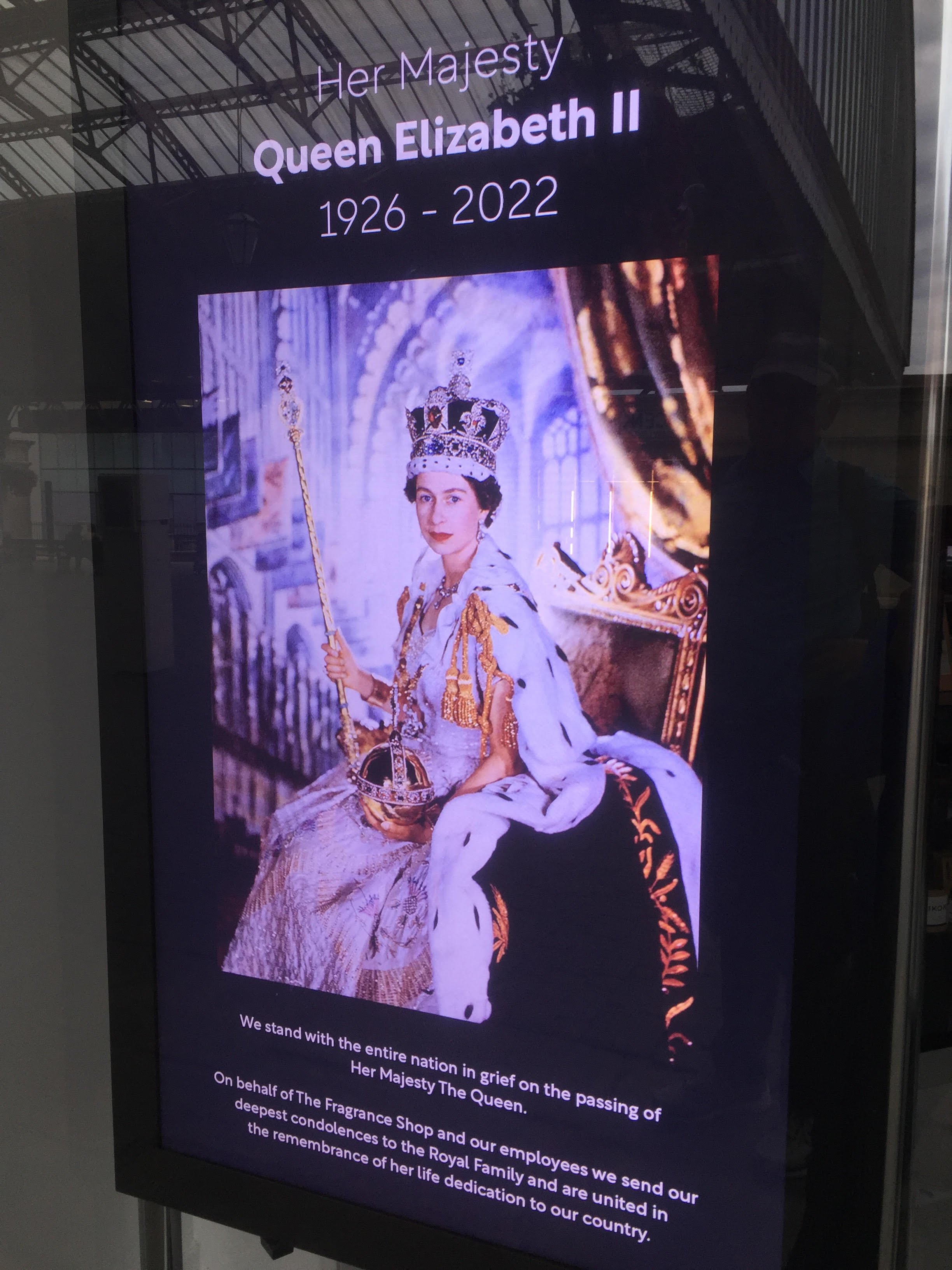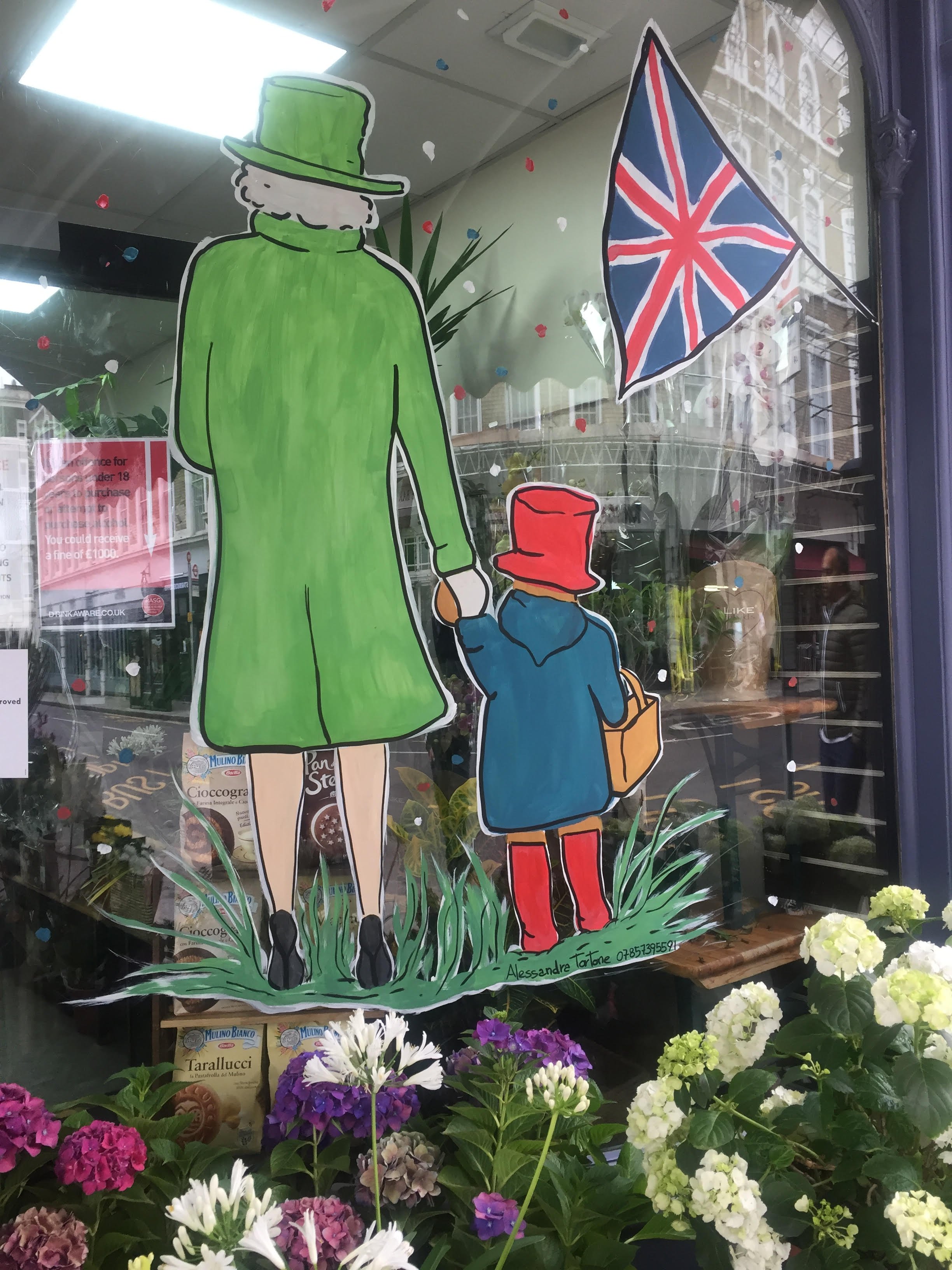UK Reflections by Joyce Hedges
UK Reflections
By Joyce Hedges
Great Britain’s Queen Elizabeth II died on Sept. 8. That same day, my husband and I landed in London to begin a month-long vacation in England and Scotland.
After the 10-day national mourning period, we watched the royal hearse carry her casket down Cromwell Road in front of our hotel on its way to Windsor Castle.
She was the monarch of a country I don’t live in. Her death, at 96, was hardly unexpected. Yet her death had a profound impact on me.
Being in my mid-60s, I had hoped this well-planned vacation would unfold at a slower pace than previous overseas trips. I wanted to make time for daily contemplative prayer. I even yearned for a pilgrimage aspect since our trip included a visit to the holy island of Iona in the Scottish Hebrides.
Mostly, I didn’t want to collapse in my hotel room every night because I felt the need to tick off “sights seen” on a list compiled by someone else. I’m looking at you, Rick Steves.
But, this historic moment was not in anyone’s guidebook.
Londoners were in shock. They kept saying, “I was surprised at how sad I felt.” or “It’s the end of an era.” Queen Elizabeth served so long that, when she died, only those over 80 could claim to have remembered another monarch.
In honor of the Queen, events were cancelled and museums closed, but what I felt wasn’t disappointment, but a surprising connection with my mother. She was born the same year as Queen Elizabeth.
And though she died in 2009, Mom was now with me. She reveled in the gorgeous choral music we heard at Westminster Abbey’s Evensong and watched the Queen’s procession and funeral on giant video screens in Hyde Park. As the mournful bagpipes started up, I wept. I knew Mom would have loved the Queen’s sendoff full of pomp and circumstance.
When Queen Elizabeth began her reign, my mother was raising children on a farm in Indiana. I imagine her reading about the beautiful young queen living a fairy tale life, filled with foreign travel and meetings with the famous and powerful of the day.
My mother admired her contemporary’s sense of duty and her poise as a rare woman in leadership.
Mom became a true Anglophile after living among expatriate British families in Africa during the early 1960s. After a year in Africa, our family visited London. We had even sailed home on the Cunard Line’s “RMS Queen Elizabeth” in 1962.
Mom loved afternoon tea and favored British movies and Britcom reruns on her PBS station. Bawdy dialogue was fine as long as it was delivered with an accent.
Memories of the Queen and my Mom kept converging on our trip. When a Royal Opera performance was cancelled, we got last-minute tickets to a musical in the West End. “Come From Away” is about the passengers and crew of a flight that was diverted to Newfoundland when all flights were grounded because of the Sept. 11, 2001 terrorist attacks. My parents had been similarly stuck in the Maritime Provinces of Canada while on vacation on 9/11.
After the royal funeral, our trip continued to Scotland. I cannot report that I became a serene holiday maker. Traveling on our own meant every decision about meals, activities and transportation was ours. Just the way we wanted it. Except my travel journal includes the word “exhausted” in nearly every nightly entry. I fell victim to FOMO (Fear of Missing Out) and walked too many miles on most days.
Make no mistake: we were grateful every day to have the time and resources to make such a wonderful trip. However, my prayers were not contemplative. More like, “Thank God, we caught our train.”
On a London bus, I overhead a Peruvian tourist refer to my husband as “el viejo.” That smarted, but she was right. We are the elders now.
Author Henri Nouwen said a person’s death can be their final gift to the world. The Queen brought my Mom and I together on a pilgrimage of self-knowledge. Thank you, ma’am.
